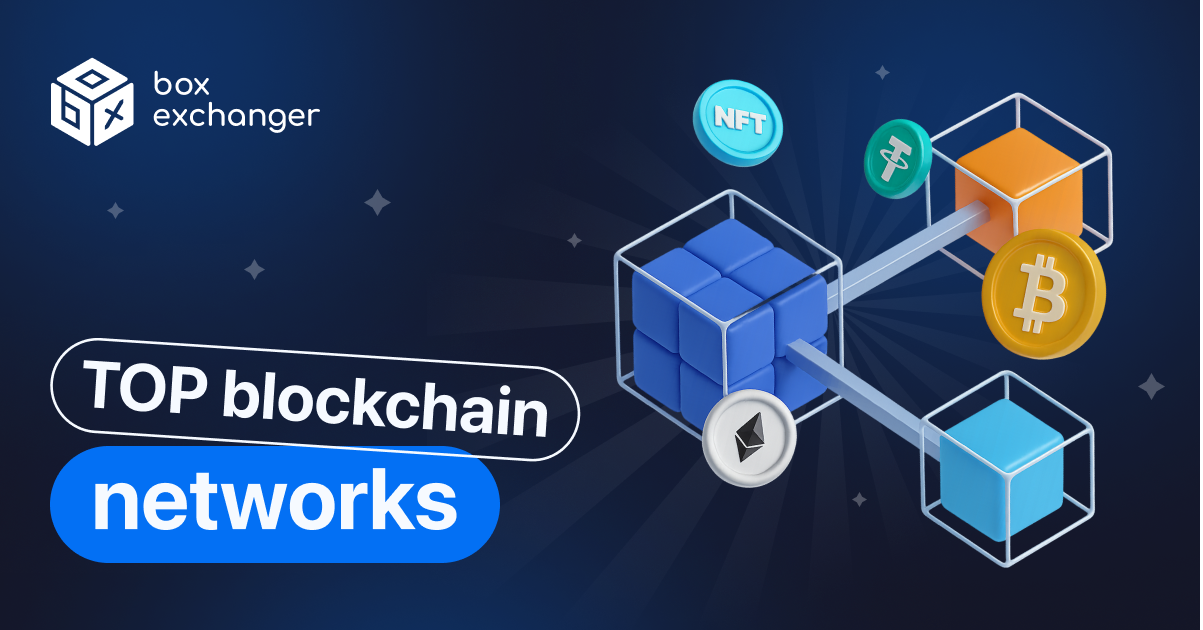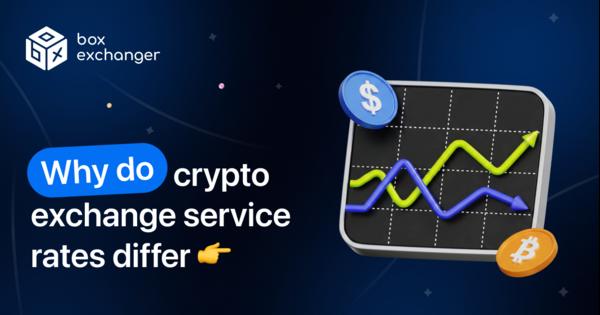6 min.
Popular Blockchain Networks
Added: July 16, 2025

The first blockchain network was Bitcoin. Since its inception, the number of blockchains has grown significantly to several hundred, and possibly thousands. These include corporate and private chains, copied coins from bitcoin, etc. All blockchain networks have their own structure and protocols, as well as ways to ensure security. The interface and functioning may differ from each other. Let's take a closer look at what blockchain networks are, which ones are very popular, and how to choose a network for your purposes.
What is a blockchain network and how does it work?
A blockchain network is a distributed database that stores information in the form of blocks linked by a chain. Each block contains information about transactions, the time and place of the transaction, and the hash of the previous block. Once a block is added to the chain, it is virtually impossible to change it, thanks to cryptographic protection.
The operation of the blockchain network is based on the principle of decentralization. This means that information is stored and updated on all nodes in the network, rather than on a central server. Each node has a copy of the entire blockchain, which ensures data integrity even if one or more nodes fail.
One of the key points of the blockchain is the consensus mechanism. This is the process by which participants in the network agree on which transactions are correct and which are not. For example, the Bitcoin network uses a Proof of Work mechanism to achieve consensus, in which participants solve complex mathematical problems to validate transactions.
Due to its unique structure and operating principles, blockchain provides security, transparency, and no need to trust centralized organizations. The technology has found applications in fields ranging from finance and banking to logistics and supply chain management. In some cases, blockchain congestion, or network congestion, may occur. This occurs when the blockchain is unable to handle a large number of transactions, and results in longer blockchain transaction confirmation times, as well as higher transaction fees.
Types of Blockchains
The following types of blockchain networks are distinguished:
1. Public. This includes Bitcoin and ETH. They are open to everyone and everyone can participate in the network by confirming transactions and creating new blocks.
2. Private blockchains. These, on the contrary, are only available to certain members of the network. They are often used in the corporate sector to secure data and share information between companies.
3. Hybrid. These blockchains combine the benefits of both public and private types. They strike a balance between transparency and data privacy.
Another interesting type of blockchain is multichain. It allows you to create multiple parallel blockchains, which increases the scalability and performance of the system.
Also worth mentioning is the DAG (Directed Acyclic Graph) blockchain, which differs from the traditional blockchain and is a directed acyclic graph where each transaction can be brought into a separate block.
Each type of blockchain has its own advantages and disadvantages, and choosing a specific one depends on the needs and goals of the project. It is important to understand the differences between them in order to properly apply blockchain technology to your business.
Most popular blockchain networks (ranking)
Blockchain technology has become one of the most debated topics in the world of digital assets and finance. The list of popular blockchain networks is constantly changing, and each of them has its own features and advantages. Let's take a look at a few of them in more detail. Ranking of the most popular blockchain networks:
1. Bitcoin. The best-known cryptocurrency based on blockchain technology. Bitcoin uses the concept of decentralization to ensure secure and transparent transactions.
2. Etherium. It is the second most popular blockchain network after bitcoin. Etherium allows developers to create smart contracts and decentralized applications (DApps), making it a powerful tool for various digital projects.
3. Solana. One of the fastest and most scalable blockchain platforms. Solana offers high speed and low fees, making it an attractive choice for a variety of applications and projects.
4. Tron. A blockchain platform focused on the entertainment industry. Tron allows developers to create decentralized entertainment applications and exchange tokens within the network.
5. Avalanche. This is another fast and scalable blockchain network that offers the ability to create custom subnets to improve performance and security.
6. Arbitrum . A platform for scaling decentralized applications based on etherium. Arbitrum uses optimistic rollup technology to increase transaction performance.
7. Base. It is a blockchain network focused on secure and private data storage. Base offers the ability to create private blockchains for businesses and organizations.
8. Optimism. Another platform for improving the performance of decentralized applications based on etherium. Optimism uses optimistic rollup technology to accelerate processes on the network.
9. TON (Telegram Open Network). Blockchain platform from the creators of Telegram messenger. TON offers the possibility of fast and reliable transactions, as well as payment services.
10. Polygon. This is a blockchain solution focused on improving the scalability and performance of etherium. Polygon offers high transaction speeds and low fees for users and developers.
All these blockchain networks have their own advantages and features, and the choice of the appropriate network depends on the specific tasks and requirements of the project.
How do I choose a blockchain network for my purposes?
Knowing which blockchain networks are popular is not enough. You also need to be able to choose the most suitable one for your purposes. To do this, there are several key aspects to consider:
1. It is important to determine the type of cryptocurrency you are using, as different blockchain networks may support different coins.
2. You should pay attention to the scalability of the network and its transaction speed, especially if your goals require high bandwidth.
3. make sure that the chosen network has robust defense mechanisms to protect against cyberattacks and manipulation. It is also worth considering the degree of decentralization of the network and the level of confidentiality of the data provided.
4. Pay attention to the development team and the overall community around the selected network. Quality support and an active community can greatly impact the success of your project on the blockchain network.
Also keep in mind the cost of transactions and the scalability of your project in the future. Choosing the right blockchain network can have a significant impact on the success of your project, so it is important to carefully consider all aspects before making a final decision.
Overview of the pros and cons of blockchain networks
Blockchain networks are an innovative technology that brings both advantages and disadvantages. Let's start with the pros. One of the main advantages of blockchain is decentralization. This means that information is stored on multiple nodes, making it impossible to hack. As a result, blockchain ensures the security of data and transactions.
Another important advantage of blockchain networks is transparency. All transactions are recorded in a blockchain and are available for all participants to view. This makes the system more honest and reduces the risk of fraud.
It is also worth noting the high speed of transactions in blockchain networks. Thanks to the absence of intermediaries and the automated process of transaction confirmation, transfers can be made almost instantly.
However, there are disadvantages to blockchain networks. One of them is high energy consumption. Cryptocurrency mining and transaction confirmation require large amounts of electricity, which has a negative impact on the environment.
Another disadvantage of blockchain technology is scalability. So far, it is difficult for it to process large volumes of transactions, which can lead to delays and network congestion.
Conclusion
Blockchain networks are used in a variety of applications, from cryptocurrency platforms to financial technology. There is a wide range of blockchain networks that are reliable and secure. Despite their popularity and a large number of advantages, they also have certain disadvantages. But even considering this fact, blockchain technology continues to evolve and find new applications in the modern world.
The information provided in this article is for informational purposes only and does not constitute a guide to action, financial recommendation or investment advice. Cryptocurrency investments involve a high level of risk and each investor should conduct his/her own analyses, assess his/her financial capabilities and consult with professional financial advisors before making investment decisions.
Frequently Asked Questions
What are the advantages of using blockchain networks to transfer information?
Blockchain networks provide transparency, security and decentralization of information transfer, which eliminates the possibility of manipulation and data tampering.
What types of blockchain networks exist and what are their differences?
There are public, private and hybrid blockchain networks. Public networks are open to everyone, private networks are accessible only to certain participants, and hybrid networks combine elements of both.
How does blockchain network mining affect the environment?
Blockchain mining requires a large amount of computing power, which can consume large amounts of energy and therefore negatively impact the environment. However, there are projects that are striving for more energy efficient mining.
Also read

February 28, 2026
How exchange rates work in crypto exchangers and why they differ
Users compare quotes and want to understand how rates work in crypto exchangers: the numbers on the storefront look...

February 24, 2026
How to choose a cryptocurrencty exchanger
The query how to choose a crypto exchange often sounds the same: you want to buy crypto assets, quickly top up your...

January 28, 2026
Cryptocurrency regulation in the EU
Cryptocurrency regulation in the EU has rapidly moved from fragmented national regimes to a single framework: this ...